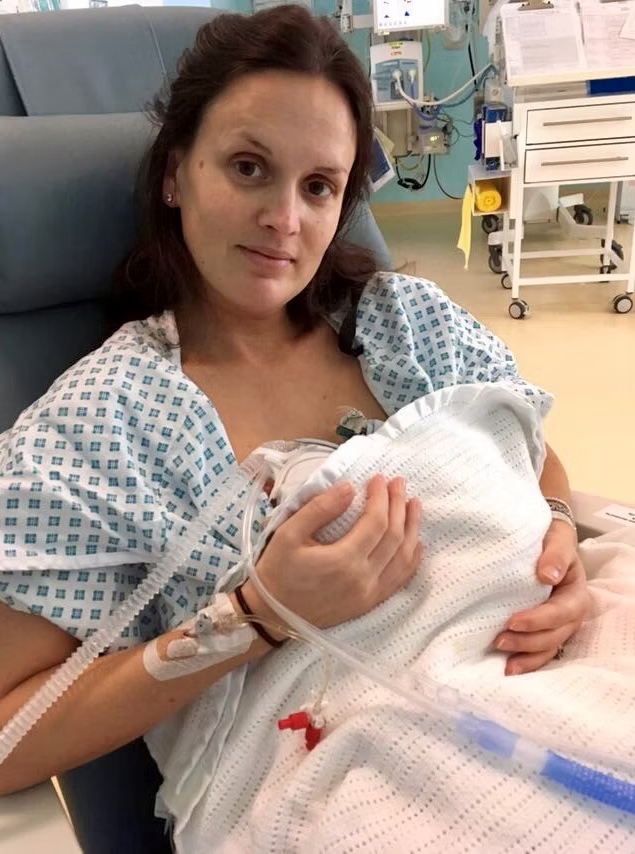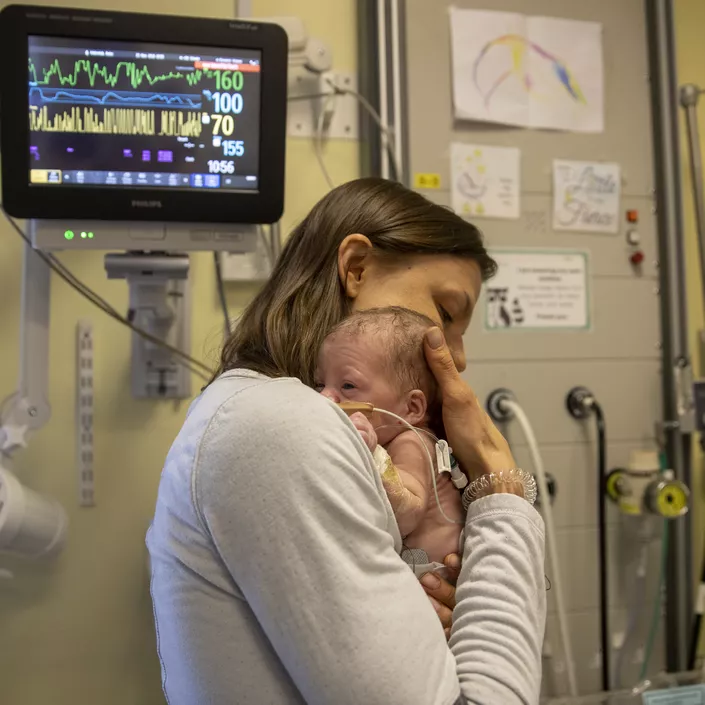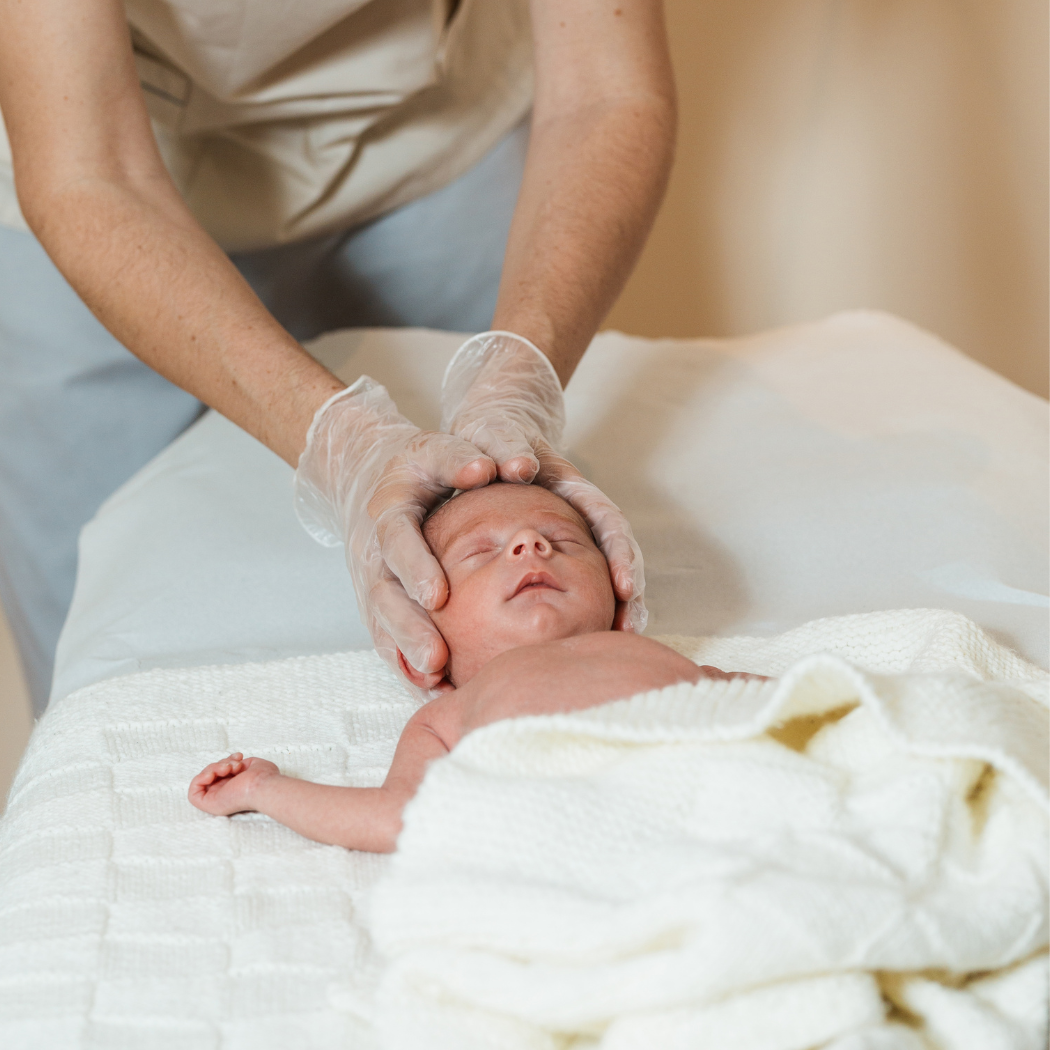

This article was contributed by Claire Innocenti, a Mindful Natal® teacher and doula.
Claire has had her own experience of premature birth and has a keen interest in supporting people who experience premature birth with their baby/babies too.
You can also find Claire on Instagram here.

November is World Prematurity Awareness Month, a month dedicated to raising awareness of premature birth, the challenges of prematurity and the lasting impact it can have on babies, their parents and the wider family.
Premature birth occurs when a baby is born before 37 weeks of pregnancy. The World Health Organisation defines babies born before 28 weeks gestation as being extremely preterm, those born between 28 and 32 weeks as very preterm and those born between 32 and 37 weeks as being moderate to late preterm babies.
It’s estimated that nearly 58,000 babies are born prematurely in the UK every year, which is around 1 in 13 babies born before 37 weeks gestation. Globally it’s estimated that prematurity affects around 13.4 million births, which is around 1 in every 10 births.
There are several risk factors known to increase the likelihood of premature labour. You can read about them here.
For some birthing people this means that they are aware of the risks during their pregnancy and can prepare in advance for the possibility of preterm labour.
However, in most cases, premature birth happens spontaneously, with health care providers sadly unable to provide parents with explanations for the early arrival of their baby.
In some cases, a preterm birth may be planned and induced as it is safer, for medical reasons, for the baby (and sometimes the birthing person) to be born early.
Many babies born before 37 weeks gestation will need some kind of specialist neonatal care, immediately after birth, either in a Neonatal Intensive Care Unit (NICU), or a Special Care Baby Unit (SCBU).
Depending on the gestation and the needs of the baby, they may require a transfer to a different hospital with specialist neonatal facilities. The amount of time a baby will need specialist care for is almost impossible to say – it can vary greatly, from just a few hours to many weeks or months.
It is also important to note that not all premature babies will require neonatal care, particularly those born between 34 and 36 weeks of pregnancy.
Outcomes for babies born prematurely can be very positive, but they can also be vulnerable to challenges associated with their prematurity, including long-term health conditions. Generally, the earlier a baby is born, the greater their vulnerability. However, it is important to know that every baby develops differently, and outcomes depend on a huge variety of factors. Many premature babies grow into healthy children and adults, with no lasting issues.
With the right medical care, it is possible for babies to survive when born as early as 24 weeks. The world’s most premature surviving baby was born in the USA at just 21 weeks and 1 day.
If you have not yet started your maternity leave and your baby is born prematurely, your maternity leave will start the day after they are born. In the UK currently, there is unfortunately no provision for the entitlement of additional maternity leave or pay if your baby is born prematurely.

However, as of April 2025, the Neonatal Care (Leave & Pay) Act 2023 will come into action. This new law will allow parents of babies who require neonatal care after birth to take up to 12 weeks’ paid leave. This is in addition to any other maternity or paternity leave
entitlements. The law will apply to parents of babies who are admitted into hospital up to the age of 28 days, and who have a continuous stay in hospital of 7 full days or more.
Having a premature baby can be a challenging, overwhelming and scary experience, and it’s not uncommon for parents to struggle with their emotional well-being and mental health. It is important to know that you are not alone and that there is some incredible support available.
Charities including Bliss, Tommys and TinyLife in Northern Ireland offer support for families and there is there is a growing online community of support too Dr Frankie Harrison, a Clinical Psychologist who has personal experience of prematurity and neonatal care runs Miracle Moon, a NICU support community for families who have been through neonatal care and / or birth trauma, with an extensive online community over on Instagram too.
Thank you to Claire for sharing this information!


It's never been more important to use evidence-based information to make decisions and feel supported in what you feel is best for yourself and baby.

A gentle and effective approach to supporting your baby's wellbeing.

Pregnancy and parenthood bring big changes, and without the right support, they can lead to increased stress, time away from work, and employees feeling they have no choice but to leave.